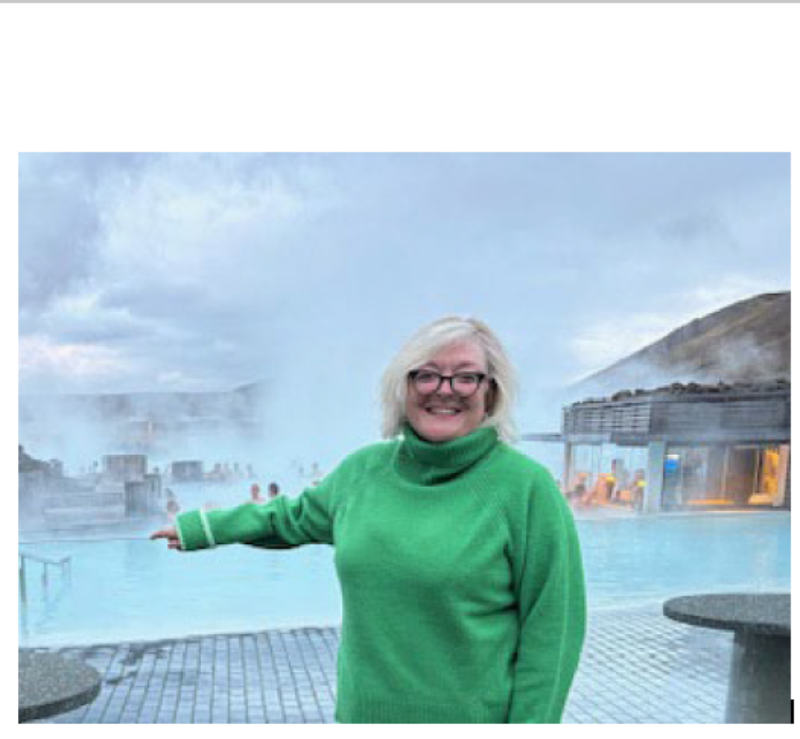At the Institute for Financial Wellbeing, we’re always interested in what other countries are doing to nurture financial wellbeing tenets, so when Sarah Marks, CEO of Associate Member RedSTART Educate, mentioned she was travelling to Iceland to investigate their financial education movement, we were keen to find out more. Here’s what she learnt from the visit:
Iceland has a population of about 385,000 people vs 66 million here in the UK, and the status of financial education in the education system is very similar. But we should not take any comfort from that. It just means we are failing 200 times as many people. I was recently there to take a look at financial education and the long-term saving behaviours of the Icelandic people. Here are some of my key takeaways:
- Bank branded materials are not allowed in the classrooms. Instead, Finance Iceland member organisations pay a levy which is used in part to support financial education resources for schools, which are created and delivered by Wise Finance, via SFF
- Financial education is not compulsory in school in Iceland and is delivered only when enthusiastic teachers make time and space for it. The resources they use are provided by Wise Finance free of charge, and currently only for secondary students.
- The main curriculum is currently being revised. There is widespread agreement on the importance of financial literacy and the need for its inclusion in the new curriculum. Sound familiar?
- Like the UK, Iceland does not participate in the OECD/PISA assessments (The Programme for International Student Assessment, a worldwide study by the Organisation for Economic Co-operation and Development). Neither of us are sure whether this is more likely to be because of the cost, or the fear of having to take action when the results are published
- Icelandic schools participate in the European Money Quiz. This is the biggest Europe wide competition aimed at improving financial literacy among 13- to 15-year-olds and is open to all member countries of the European Banking Federation.
An Icelandic approach to retirement
Iceland has also taken a more interventionist approach when it comes to retirement saving.
*A minimal base state pension is provided to all, with the bulk of state pension payments coming from three supplementary streams, all income tested:-
- An income supplement
- A household supplement for people living alone
- A minimum subsistence guarantee, making sure that everyone is topped up to a reasonable level relative to a national poverty indicator.
It is also the law in Iceland that you pay a fixed percentage of your earnings into your pension. At the end of each tax year the Government departments receive your income return and compare that with your retirement savings and they will send you a bill if they can’t establish that you have made the minimum allocation to your pension. This applies whether you are an employee or self-employed. There is no opting out or drawing down of lump sums. You will save the amount set by the Government until you retire, when you can draw your regular income.
Interestingly, this level of support has not affected people wanting to work. The employment rate is higher than the UK in every age group, most notably in the younger and older ends of the spectrum. Icelanders generally retire later than other advanced Western nations, reducing the burden on the social security system, as Icelanders have fewer years in retirement than is common elsewhere.
According to the not-for-profit Independent Age, around two million pensioners in the UK live in poverty. That’s close to one in five, and that number is predicted to double over the next few decades. Are we under the illusion that in the UK everyone wants freedom and choice when actually, where long term financial security is concerned, the reality is a bit different?
The latest Ipsos Global Trends survey says that 60% of people believe the important thing is to enjoy today, and that tomorrow will look after itself. If that is the prevailing attitude and we continue to choose not to educate our population, the onus will ultimately be on the UK Government and businesses to make sure that we manage the very real, “keeps me awake at night” risk, of growing levels of pensioner poverty in the UK.
*With thanks to Alex Miles for the retirement information
RedSTART’s education programmes transform the life chances of some of the UK’s most disadvantaged children. If you want to see RedSTART Educate workshops in action and help in a hands-on way, you can use this link to register to help with a Year group in a school and on a date that suits you.

